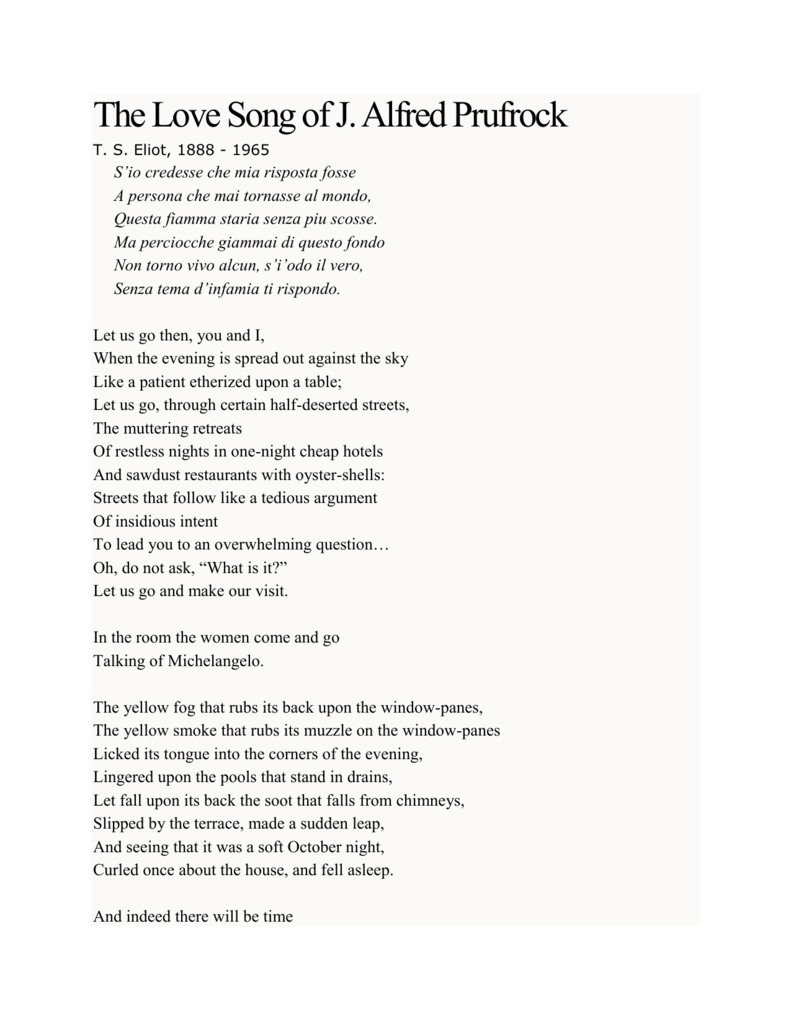



This is evident later on, when he reiterates this towards the end of the poem, asking himself how he should part his own hair and whether a peach is too messy for him to eat in public. This lingering doubt that others place on his shoulders weighs heavy on Prufrock. He is upset that others view him mostly by his physical appearance and seemingly strange demeanor, instead of by his true intentions and feelings. One of the first things the reader notices is Prufrock’s self-doubt and social awkwardness, continuously recounting how others may make fun of his physical features at his every action, from the turning of his head (“They will say: How his hair is growing thin!”) to his choice of apparently unflattering clothing (“They will say: But how his arms and legs are thin!”) (Eliot 735). To swell a progress, start a scene or two,Īdvise the prince no doubt, an easy tool, No! I am not Prince Hamlet, nor was meant to be He is once again showing his meek nature and unwillingness to take a leading role in even his own life. Alfred Prufrock” also alludes to Shakespeare’s Hamlet, with Prufrock pointing out that he is not as courageous and is happy as (sarcastically so, one could presume) “an attendant lord… deferential, glad to be of use” and not Prince Hamlet (Eliot 734). With a Biblical backdrop, one can see that Prufrock, in some ways, adheres to the social conventions at the time and is in touch with at least some of them-even if it is begrudgingly so. In addition to adding a somber tone throughout the poem, it also gives the reader a lens to see Prufrock’s true self a quiet man with deep knowledge and passive acceptance. The poem later employs several Biblical references the first occurrence is a direct mention of the story of Lazarus, while the others allude to lesser-known stories, such as John the Baptist’s death when referring to his head upon a platter, as well as the passages in Ecclesiastes 3:1-8 that refer to a time to murder and create (Eliot 734). This literary device also gives the reader an impression that Prufrock is well-educated and intelligent, hinting at his middle or upper-class status in society. The poem seems steeped in allusions, which lends an air of authority to J. Alfred Prufrock” begins with a quote from Dante Alighieri’s Inferno in the original Italian, the first of many outside literary references Eliot makes.


 0 kommentar(er)
0 kommentar(er)
